 We recently had a rather spirited discussion in one of my Facebook groups regarding the subject of the First Amendment and the Muslim “religion”. One side of the room believed that Muslims were entitled to practice their “religion” and participate in American politics and society under the First Amendment; the other side, not so much.
We recently had a rather spirited discussion in one of my Facebook groups regarding the subject of the First Amendment and the Muslim “religion”. One side of the room believed that Muslims were entitled to practice their “religion” and participate in American politics and society under the First Amendment; the other side, not so much.
Now that is a very good question — would the Founders have welcomed a “religion” into this budding nation if they knew (which they did) that they were simply allowing entry to a “Trojan Horse” which would demand nothing less than total control, and devour all that they fought and died for?
 The Founders would not have favored integrating Islam into our schools, government, and other civil institutions. Far from it. In his discussion of freedom of religion in his monumental Commentaries on the Constitution of the United States, Father of American Jurisprudence Joseph Story clarified the meaning of the First Amendment with regard to the priority of Christianity:
The Founders would not have favored integrating Islam into our schools, government, and other civil institutions. Far from it. In his discussion of freedom of religion in his monumental Commentaries on the Constitution of the United States, Father of American Jurisprudence Joseph Story clarified the meaning of the First Amendment with regard to the priority of Christianity:
“[I]t is impossible for those, who believe in the truth of Christianity, as a divine revelation, to doubt, that it is the especial duty of government to foster, and encourage it among all the citizens and subjects….”
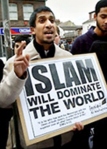 Indeed, in a republic, there would seem to be a peculiar propriety in viewing the Christian religion, as the great basis, on which it must rest for its support and permanence, if it be, what it has ever been deemed by its truest friends to be, the religion of liberty.
Indeed, in a republic, there would seem to be a peculiar propriety in viewing the Christian religion, as the great basis, on which it must rest for its support and permanence, if it be, what it has ever been deemed by its truest friends to be, the religion of liberty.
Probably at the time of the adoption of the constitution, and of the amendment to it, now under consideration, the general, if not the universal, sentiment in America was, that Christianity ought to receive encouragement from the state, so far as was not incompatible with the private rights of conscience, and the freedom of religious worship. An attempt to level all religions, and to make it a matter of state policy to hold all in utter indifference, would have created universal disapprobation, if not universal indignation (1833, 44.723-726.3.3.1865-1868, emp. added).
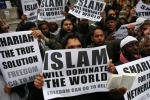 Indeed, the First Amendment was never intended to “level all religions” (and Islam can hardly be stylized “the religion of liberty”). Story further explained that
Indeed, the First Amendment was never intended to “level all religions” (and Islam can hardly be stylized “the religion of liberty”). Story further explained that
“…the real object of the [First] amendment was not to countenance, much less to advance Mohammedanism, or Judaism, or infidelity by prostrating Christianity; but to exclude all rivalry among Christian sects and to prevent any national ecclesiastical establishment which should give to a hierarchy the exclusive patronage of the national government”, (1833, 3:728, emp. added).
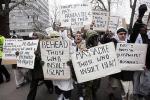 It is imperative that we not misconstrue the Founders’ strong emphasis on religious freedom and tolerance as an indication that they viewed all religion as legitimate or conducive to the principles of the Republic. Their central concern was “disestablishment,” i.e., preventing the federal government from establishing one Christian sect as the state religion. Their idea of “freedom of religion” was first and foremost freedom to pursue the Christian religion unhindered by the federal government, and only secondarily freedom to practice non-Christian religion. This truth is verified by the discussions surrounding the wording of the First Amendment. George Mason—who has gone down in American history as the Father of the Bill of Rights—proposed the following wording:
It is imperative that we not misconstrue the Founders’ strong emphasis on religious freedom and tolerance as an indication that they viewed all religion as legitimate or conducive to the principles of the Republic. Their central concern was “disestablishment,” i.e., preventing the federal government from establishing one Christian sect as the state religion. Their idea of “freedom of religion” was first and foremost freedom to pursue the Christian religion unhindered by the federal government, and only secondarily freedom to practice non-Christian religion. This truth is verified by the discussions surrounding the wording of the First Amendment. George Mason—who has gone down in American history as the Father of the Bill of Rights—proposed the following wording:
“All men have an equal, natural and unalienable right to the free exercise of religion, according to the dictates of conscience; and that no particular sect or society of Christians ought to be favored or established by law in preference to others” (as quoted in Rowland, 1892, 1:244, emp. added).
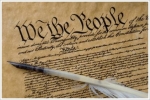 While Mason’s proposal did not make the final cut, it nevertheless establishes the historical context of the Founders’ discussion, demonstrating that their concern was first and foremost for the free exercise of the Christian religion. Using similar terminology, Mason had previously crafted The Virginia Declaration of Rights—the very document which influenced both Thomas Jefferson’s wording of the Declaration of Independence as well as James Madison’s draft of the Bill of Rights that was added to the federal Constitution. Article XVI of The Virginia Declaration of Rights reads:
While Mason’s proposal did not make the final cut, it nevertheless establishes the historical context of the Founders’ discussion, demonstrating that their concern was first and foremost for the free exercise of the Christian religion. Using similar terminology, Mason had previously crafted The Virginia Declaration of Rights—the very document which influenced both Thomas Jefferson’s wording of the Declaration of Independence as well as James Madison’s draft of the Bill of Rights that was added to the federal Constitution. Article XVI of The Virginia Declaration of Rights reads:
“That religion, or the duty which we owe to our Creator, and the manner of discharging it, can be directed only by reason and conviction, not by force or violence, and therefore all men are equally entitled to the free exercise of religion, according to the dictates of conscience; and that it is the mutual duty of all to practice Christian forbearance, love, and charity towards each other” (Mason, 1776, emp. added).
 To the Founders, “tolerance” was not to be equated with approval or agreement, let alone encouragement that would imply an equal place should be made for non-Christian religion in government, schools, etc. The Founders were no more willing to encourage Islam than they were interested in encouraging the spread of atheism, paganism, or Native American religion. [NOTE: Atheists, though few in number at the time in America, were not allowed to serve as witnesses in court — see Story, 1851, 2:8-9; Swift, 1796, 2:238.]
To the Founders, “tolerance” was not to be equated with approval or agreement, let alone encouragement that would imply an equal place should be made for non-Christian religion in government, schools, etc. The Founders were no more willing to encourage Islam than they were interested in encouraging the spread of atheism, paganism, or Native American religion. [NOTE: Atheists, though few in number at the time in America, were not allowed to serve as witnesses in court — see Story, 1851, 2:8-9; Swift, 1796, 2:238.]
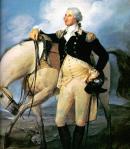 For example, the Father of our country, George Washington, delivered a speech to the Delaware Indian chiefs on May 12, 1779:
For example, the Father of our country, George Washington, delivered a speech to the Delaware Indian chiefs on May 12, 1779:
“You do well to wish to learn our arts and ways of life, and above all, the religion of Jesus Christ. These will make you a greater and happier people than you are. Congress will do everything they can to assist you in this wise intention” (15:55, emp. added).
 Far from encouraging the superstitious idolatry of much of Native American religion, the Founders (including the Congress!) urged Indians to convert to Christianity. The same may be said for all other non-Christian ideologies—including the inherently godless economic philosophies of socialism, Marxism, fascism, and atheistic communism. Indeed, their words and actions denigrate such thought systems. They believed that non-Christian philosophies and religions were false and ultimately detrimental to genuine liberty.
Far from encouraging the superstitious idolatry of much of Native American religion, the Founders (including the Congress!) urged Indians to convert to Christianity. The same may be said for all other non-Christian ideologies—including the inherently godless economic philosophies of socialism, Marxism, fascism, and atheistic communism. Indeed, their words and actions denigrate such thought systems. They believed that non-Christian philosophies and religions were false and ultimately detrimental to genuine liberty.
James Iredell, a U.S. Supreme Court judge appointed by George Washington, articulated this point succinctly in 1788 in the debates on the wording of the Constitution:
“But it is objected that the people of America may perhaps choose representatives who have no religion at all, and that pagans and Mohammedans may be admitted into offices…. But it is never to be supposed that the people of America will trust their dearest rights to persons who have no religion at all, or a religion materially different from their own” (Elliot, 1836, 4:194, emp. added).
 Samuel Johnston, governor of North Carolina and member of the Constitution ratifying convention in 1788, likewise felt confident that Muslims should not, and hopefully would not, be allowed to become mainstream in American politics and public institutions—except in only two cases:
Samuel Johnston, governor of North Carolina and member of the Constitution ratifying convention in 1788, likewise felt confident that Muslims should not, and hopefully would not, be allowed to become mainstream in American politics and public institutions—except in only two cases:
“It is apprehended that Jews, Mohammedans, pagans, etc., may be elected to high offices under the government of the United States. Those who are Mohammedans, or any others who are not professors of the Christian religion, can never be elected to the office of President or other high office, but in one of two cases. First, if the people of America lay aside the Christian religion altogether, it may happen. Should this unfortunately take place, the people will choose such men as think as they do themselves. Another case is, if any persons of such descriptions should, notwithstanding their religion, acquire the confidence and esteem of the people of America by their good conduct and practice of virtue, they may be chosen. I leave it to gentlemen s candor to judge what probability there is of the people’s choosing men of different sentiments from themselves” (Elliot, 4:198-199, emp. added).
 Constitution signer Richard Dobbs Spaight echoed the same prevailing sentiment:
Constitution signer Richard Dobbs Spaight echoed the same prevailing sentiment:
“As to the subject of religion…[n]o power is given to the general government to interfere with it at all…. No [Christian—DM] sect is preferred to another. Every man has a right to worship the Supreme Being in the manner he thinks proper. No test is required. All men of equal capacity and integrity are equally eligible to offices…. I do not suppose an infidel, or any such person, will ever be chosen to any office unless the people themselves be of the same opinion” (Elliot, 1836, 4:208, emp. added).
Implicit in all t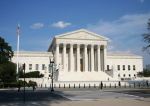 hree of these Founders’ observations is the fact that Christianity was the underlying belief system on which the Republic was poised. The Founders were unanimous in their desire that the Constitution provide no pretext for governmental interference in the free exercise of the Christian religion by the citizenry. So the only way that atheism or Islam could ever make headway in America’s social and civil institutions is if the people themselves abandon their Christian values.
hree of these Founders’ observations is the fact that Christianity was the underlying belief system on which the Republic was poised. The Founders were unanimous in their desire that the Constitution provide no pretext for governmental interference in the free exercise of the Christian religion by the citizenry. So the only way that atheism or Islam could ever make headway in America’s social and civil institutions is if the people themselves abandon their Christian values.
Tragically, their words were prophetic.
